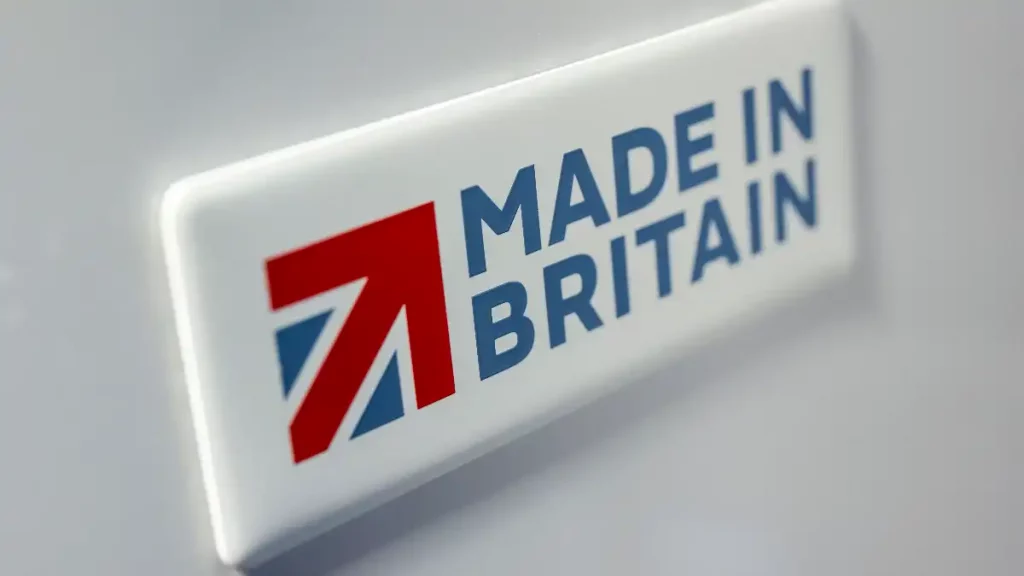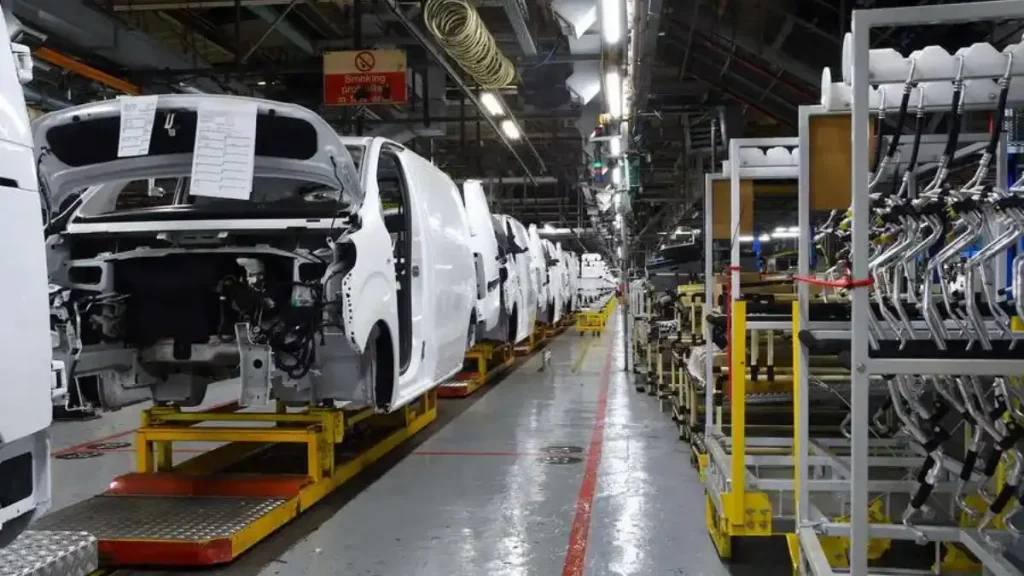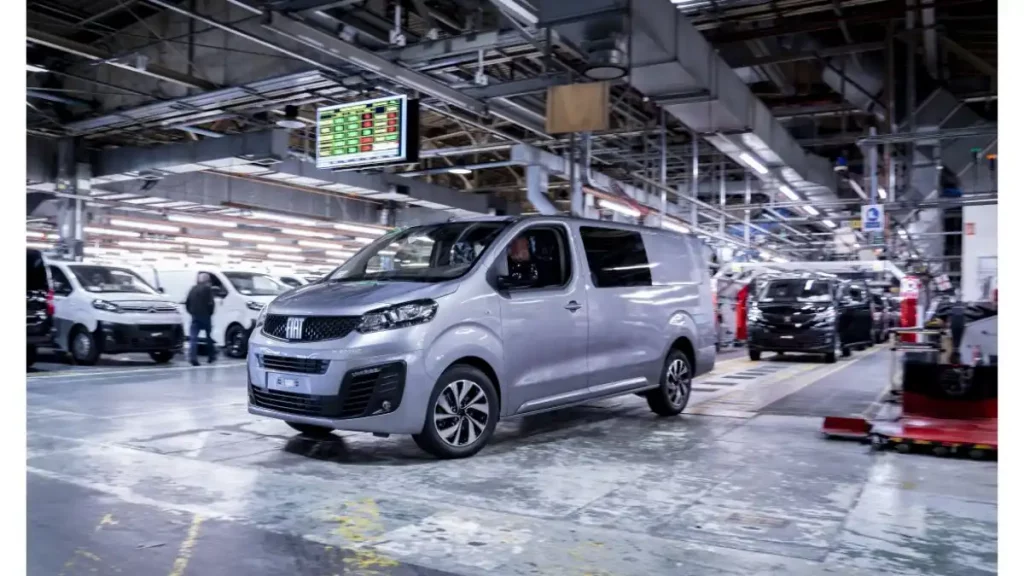
The Vauxhall van plant in Luton has a long history dating back more than 120 years, with the Luton plant developing into one of Vauxhall's strongest assets.
It started life in 1905 making cars, but the Vauxhall Luton plant has become best known over the years as the home of the Vauxhall Vivaro van. Its heritage producing vans dates back to the 1930s when Bedford vans were made their, specifically box bodied models that became known as Luton vans, which is where the name originates.
You can read more about the history of Luton vans in the link, which includes the story of the Luton van name.
The Luton Vauxhall plant has led an exciting and varied life, from car production to wartime tanks, and of course plenty of vans. Sadly, that legacy is drawing to an end, with the Vauxhall Luton plant closure more than a century of vehicle production will end.
Instead of mourning the factory closure, lets instead look at all the amazing things the Vauxhall plant has done during its impressive 125 year working life.
Long before Vauxhall, there was Vauxhall Iron Works. Founded in 1857 by Scottish marine engineer Alexander Wilson in Vauxhall, London, the company initially produced pumps and marine engines.
In 1897, the company was renamed Vauxhall Iron Works but it wasn't until 1903 that Vauxhall Iron Works stepped into the automotive sector and built its first car.
The first Vauxhall car had a 5hp, single-cylinder engine and was steered by a tiller.
The move to Luton in 1905 was as a result of needing larger premises to expand car production, with the 7-acre site on Kimpton Road the ideal site for the new Vauxhall plant. A 9hp car soon followed in 1906 and Vauxhall Iron Works officially changed its name to Vauxhall Motors in 1907, reflecting the company’s now main focus on vehicle manufacturing.
The move had laid the foundation for the long love affair between the town of Luton and Vauxhall Motors.
During World War I, the Vauxhall Luton plant played an important role in supporting the British war effort dedicating itself to military production of its D-Type models. Around 1500 were used as staff cars for the British forces, transporting officers and personnel. The Luton Vauxhall plant also established a separate munitions factory in 1915, which focused on manufacturing fuses for high-explosive shells.
As Britain recovered from the cost and exertion of World War I, Vauxhall went back into car production prompting American automotive giant General Motors (GM) to acquire Vauxhall in 1925 for $2.5 million.
Under GM's ownership, Vauxhall expanded into commercial vehicle production with the establishment of Bedford Vehicles as a subsidiary based in Luton.
While commercial vehicles had been produced in Luton under the "Chevrolet Bedford" name since 1929, the creation of the Bedford brand in April 1931 was the starting point for the plant’s focus on producing commercial lorries, trucks, and vans.
This move by was aimed at tapping into the growing demand for reliable commercial transport in the UK.
The first Bedford-badged vehicles were 2-ton trucks which rolled off the Luton production lines in 1931. These new models were essentially evolutions of the earlier Chevrolet Bedford vans. The rest of the decade saw the introduction of various other Bedford models, including light vans and heavier trucks.
Vauxhall also introduced more affordable cars including the Cadet and the Vauxhall 10.

Vauxhall and the Luton plant played a crucial role again the war effort, producing Churchill tanks and around a quarter of a million Bedford trucks.
During World War II, the Vauxhall Luton plant ceased regular car production in May 1940, becoming a crucial centre for the design, development, and production of the Churchill tank.
Facing a severe shortage of tanks after Dunkirk, the British Army relied heavily on Vauxhall's expertise and the Luton factory was instrumental in producing a significant portion of the 5,640 Churchill tanks built during the war.
Not only did Luton produce tanks it also developed and manufactured many of the tank's components which were then assembled by other companies.
As well as the tanks more than 250,000 Bedford lorries, were produced for transporting troops and supplies.
Other outputs including 5m sheet metal sides for jerrycans, 4m rocket venturi tubes and 750,000 steel helmets. Six-pound armor-piercing shells were also made.
Vauxhall was also involved in the early development of jet engines in Britain and contributed to the tooling for aircraft engines and the development of the Mosquito, Lancaster, and Halifax bombers. They even designed inflatable decoy trucks and aircraft to mislead the enemy.
Due to its vital role in the war effort, the Vauxhall Luton plant became a target for German bombing raids, and on 30 August 1940 a German bomb hit the factory, killing 39 employees and injuring 40 more. Despite the plant being heavily camouflaged to avoid detection.
After World War II, the Vauxhall Luton plant quickly resumed civilian production.
Initially, models produced focused on updated versions of pre-war models, but before long, new post-war designs, including the Vauxhall Wyvern and the Vauxhall Velox were introduced. These cars, launched in 1948 shared an "alligator" bonnet and were crucial in re-establishing Vauxhall in post-war Britain.
The Luton plant continued to be the primary site for both car and commercial vehicle production as Vauxhall navigated the evolving automotive landscape of the post-war era but moved its bus and truck production to a new plant in Dunstable in 1958.
Van and car production remained in Luton with Bedford Vehicles establishing a joint venture with Isuzu in 1986, creating the Isuzu Bedford Company (IBC). IBC ended up producing some of the most memorable Bedford models including the Bedford Midi (a rebadged Isuzu Fargo) and the Bedford Rascal.
In 1998 GM bought Isuzu's stake in IBC and renamed the plant GMM Luton (GM Manufacturing Luton).
Then in 2001, production began of the Vauxhall Vivaro van at the Luton plant. Not only did it produce the Vivaro, but also sister vans the Renault Trafic and Nissan Interstar.
At the time, a big blow came in 2002 when car production at the Vauxhall Luton plant ceased. Luton had previously produced significant volume models like the Viva, Cavalier, and finally, the Vectra. In fact it was a Vauxhall Vectra that was the last car to roll off the production line.
Following the end of car production, the Luton plant was repurposed to focus exclusively on the production of commercial vehicles. Luton continued to produce vans, with the Vivaro becoming a sales hit in the UK. As well as producing all models of the Vivaro for the UK, it also produced passenger versions of the model for Opel, as well as under contract for Renault and Nissan.
In 2017 when GM sold Opel and Vauxhall to the PSA Group (Peugeot Société Anonyme), production continued, but the merger of PSA Group and Fiat-Chrysler to create Stellantis was to signal significant chances at the Luton plant.

Stellantis brought Citroen, Peugeot and Fiat under the same roof as Vauxhall and Opel, so when contracts with its previous partners expired, the Vivaro switched over to the PSA made vans that gave rise to the Citroen Dispatch, Peugeot Expert and Fiat Scudo.
In June 2023, the plant celebrated the production of its 1.5 millionth Vivaro van, but celebrations were short-lived.

The impact of Brexit had constantly seen Luton placed in the crosshairs of Stellantis management and finally in November 2024, Stellantis announced its intention to close the Luton plant. That’s despite an earlier announcement which had suggested Luton would become the home for the new range of electric medium vans.
Strategic reasons, however, meant that all UK commercial vehicle production would transfer to Ellesmere Port , which after having also been closed years earlir would be transformed into a dedicated electric van manufacturing plant.
The last Luton-built Vauxhall Vivaro was built at 12:18pm on Friday 28 March 2025.
After the closure of the Vauxhall Luton plant, property developer Goodman acquired the former Vauxhall site.
Plans for future use of the site include a commercial and industrial park. Investment is said to total £400m.
